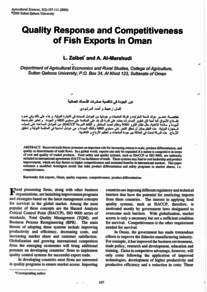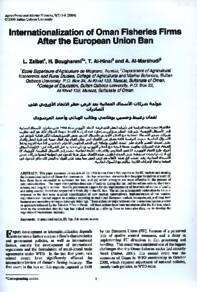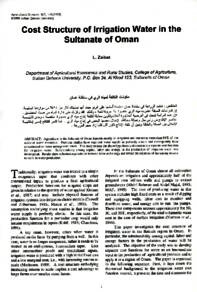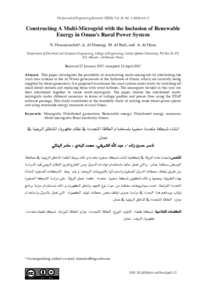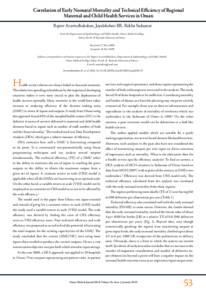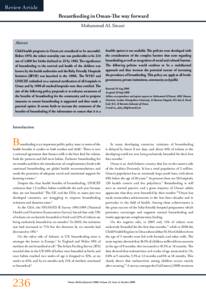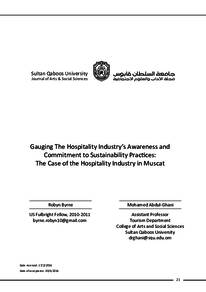وثيقة
Quality response and competitiveness of fish exports in Oman.
المساهمون
Al-Marshudi, A., مؤلف
الناشر
Sultan Qaboos university
ميلادي
2000
اللغة
الأنجليزية
الملخص الإنجليزي
Received trade theory presumes an important role for increasing returns to scale, product-differentiation, and quality as determinants of trade flows. In a global world, exports can only be expanded if a nation is competitive in terms of cost and quality of traded products. Food safety and quality systems, such as HACCP or ISO 9000, are indirectly included in international agreements (GATT) as facilitators of trade. These systems may lead to cost leadership and product improvement, which are key factors to higher competitiveness and sustained benefits in international markets. This paper estimates a modified Armington model that links product differentiation and safety programs to market shares, i.e. competitiveness.
المجموعة
ISSN
2410-1079
URL المصدر
zcustom_txt_2
Zaibet, L., & Al-Marshudi, A. (2000).Quality response and competitiveness of fish exports in Oman. Journal of Agricultural and Marian Sciences, 5 (2), 107-111.
الملخص العربي
تعتبر عوائد السعة المتزايدة وتفرقة المنتجات وجودتها من العوامل المحددة في التجارة الدولية. وبناء على ذلك وفي ضوء انفتاح الأسواق العالمية فإن تطوير الصادرات يعتمد على قدرة كل بلد على المنافسة على مستوى التكلفة والجودة. وتعتبر نظم ضبط الجودة وسلامة الأغذية، مثل نظام الأيزو 9000 ونظام تحديد المخاطر والنقاط الحرجة HACCP، من العوامل المساعدة على انسياب التجارة الدولية. هذه النظم يمكن أن تحقق التميز على مستوي التكلفة وكذلك الجودة وهي عوامل أساسية في المنافسة الدولية وتحقيق الأرباح. هذه الورقة تبحث في العلاقة بين جودة المنتجات وتعظيم الأرباح والتنافسية.
قالب العنصر
مقالات الدوريات

